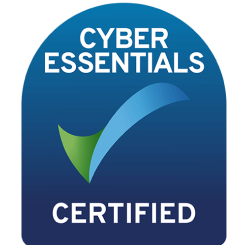Consider the last time you faced a barrier to learning—perhaps a missed lecture or an inaccessible textbook. Online biology programs are dissolving such barriers, reinventing the accessibility of science education. They offer flexibility and breadth, empowering everyone from undergraduates to industry veterans with the tools for advancement.
These digital platforms are more than a convenience; they’re an evolution in pedagogy. They transform not just when and how we learn, but also who can partake in the scientific community’s progress.
As we analyze their influence, it becomes clear: online biology programs are fostering a new era of lifelong learning and professional development. So let’s do just that, in more detail.
Branching Out: The Ever-Expanding Reach of Online Learning
Gone are the days when learning was confined to the four walls of a classroom. Online biology programs have extended the branches of education, with technology allowing knowledge to flourish in remote and previously underserved areas. Students from varied parts of the planet now access courses from renowned institutions, which were once distant dreams.
This expansion is not just geographical but also demographic. Lifelong learners who juggle careers and family responsibilities find that online programs synchronize with their complex schedules.
The adaptable nature of digital courses enables personalized pacing—so crucial for grasping complex biological concepts. This shift towards inclusivity champions diversity within scientific fields, catalyzing innovation through a multitude of perspectives.
Sequencing Success: Customized Pathways in Online Biology Education
Pursuing a science education once meant a significant commitment to on-campus schedules and often restrictive timelines. Now, online platforms have redesigned the starting blocks of acquiring an associate’s degree in biology. Aspiring biologists can ignite their passion for the subject through virtual labs and forums, all while maintaining a balance with other aspects of their lives.
This shift has monumental implications for career trajectories. Individuals can test the waters of biological sciences through online coursework before committing to more advanced degrees.
For some, the initial spark provided by an associate’s level foundation flourishes into a pursuit of higher education—masters or even doctorates. Others find that the practical skills and knowledge gained fit neatly into immediate career applications, such as lab tech positions or environmental consulting roles.
In these personalized educational environments, learners are not just accumulating credits; they’re building skill sets. The flexibility allows them to experiment with electives and interdisciplinary approaches that enrich their understanding and adaptability in a fast-changing field.
Through strategic course selection and involvement in virtual research projects, students form networks with peers and professionals worldwide—a communal learning experience reimagined across continents.
Cellular Growth: The Rise of Accessible Expertise
The landscape of biological expertise is undergoing a profound transformation—individuals who might have once considered advanced education out of reach are now engaging with complex material through screens and keyboards.
This metamorphosis brings a novel proficiency within arm’s reach, enabling a more diverse group to contribute to scientific discourse and discovery. Online biology programs emphasize mastery over mere completion, employing cutting-edge educational technology to simulate hands-on experiences that rival traditional labs.
Interactive simulations, for instance, provide nuanced insights into molecular or ecological processes without physical restraints. This not only suits different learning styles and teaching tactics but also encourages problem-solving skills vital for today’s biologists.
Furthermore, these programs often embed real-world applications into curricula, ensuring that theory is seamlessly integrated with practice. Students collaborate on projects tackling current issues such as climate change, genetic engineering, and public health crises—projects that cultivate not only knowledge but also the critical thinking required to address the challenges our world faces.
Final Thoughts
The integration of online biology programs into the fabric of education exemplifies progress. As these platforms mature, they promise to not only disseminate knowledge but also nurture a skilled and diverse scientific community poised to tackle tomorrow’s challenges with today’s digital advantages.


![]() 4 minutes
4 minutes
































